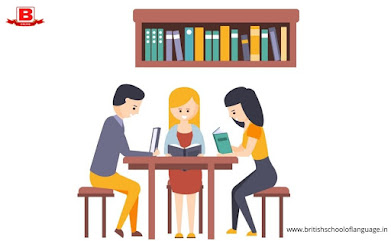15 most commonly asked questions about IELTS | BSL Noida
IELTS stands for International English Language Testing System:
IELTS is an internal standardized test of English language proficiency for nonnative English language speakers which is managed by the British council IDP: IELTS Australia and Cambridge Assessment English. This exam helps students to get admission to prestigious Universities abroad for their career growth.
IELTS tests consist of
major 4 tests and conducted on the same day without any.
The time for the test is 2
hours 45 min.
Reading Test — The reading part of IELTS is divided into 3
parts with 3 passages of each 40 mark and the candidate are required to complete
in 60 minutes given time.
Writing Test — Comprises two tasks. In task one, you have
to describe a given diagram, graph, pie chart, or any graphical
representation.Second task followed by writing an opinion on different topics
Speaking Test
—In the Speaking test, you will have an interactive discussion with a certified
examiner. the interview between the candidate and person is divided into three
parts.
Listening Test — Four recordings will be assigned for candidates to answer. Those four recordings are the conversation of two people, a monologue about social context, the conversation of four people, and a monologue about an academic Topic.
To help make taking the IELTS test an enjoyable
experience for you, we have prepared a list of frequently asked questions that
will help with any questions you may have. Please take a look at the answers
below, and if still have any additional questions please contact us and we'll
be happy to help.
The IELTS Speaking test comprises 3 rounds and
the test takes between 11 to 14 minutes.
In those 3 rounds, you are going to be assessed
on the following variables:
· Pronunciation
· Vocabulary used in your speech.
· Sentence structuring
· No grammatical errors
· Fluent speech
· Clarity on thought delivery.
· Command over language
In order to be fully prepared for the Speaking
test, you need to be thorough with the above-stated parameters. Some tips to
follow in your daily studies:
Increase your vocabulary through reading and
learning new words from newspapers that can be used daily. Do not rush while
speaking or answering, be clear in your speech, and give logical answers. Learn
to be in control and use the right expression to say what you feel about the
topic. Go at your own pace and pause was required along with an emphasis on
the right words. Eventually, your communication will come out very impressive.
Your command over the language is what will be judged. Get your fundamentals of
grammar cleared - You should clear your fundamentals of English grammar which
will help you in getting comfortable with the test, for all the skills -
listening, speaking, reading, and writing.
- What is IELTS?
- How do I prepare for IELTS?
- How to get a high score in the IELTS?
- What are the most common topics asked in the IELTS exam?
- Which countries accept IELTS Score?
- How can I improve my writing?
- How can I improve my speaking?
- How can I improve my listening?
- How can I improve my Reading?
- Should I try to use a British or American accent?
- Will using ‘academic’/’high level’ language help me get a high score?
- Should I use lots of idioms/phrasal verbs to get a high score?
- How can I improve my grammar?
- How can I practice speaking at home?
- What is the test format and how long will it take?
- What kinds of accents can be heard in the Listening and
Speaking tests?
If anyone of you looking for IELTS preparation in Noida, Join the
leading institute in Noida, British School of Language (BSL) is the leading institute in Noida providing training for exams such as IELTS, TOEFL, SAT, PTE, etc. You
can book a free demo session with them and I am sure you will not regret it.




Comments
Post a Comment